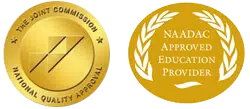Many people who struggle with drug or alcohol addiction may also suffer from an underlying mental health condition. Often, people may not realize that they have anxiety, depression, or another illness and use drugs or alcohol to self-medicate or dull some of the symptoms. At Baystate Recovery Center, we focus on not just treating the addiction and getting clean but also diagnosing and treating underlying mental illnesses. Many people have fewer incidences of relapse when receiving holistic diagnosis and treatment, from addiction counseling to family therapy.
Today, we’re talking about Mental Health Awareness Month, what it means, and resources for you or a loved one who may be struggling with mental wellness.
When is Mental Health Awareness Month?
Mental Health Awareness Month lasts the entire month of May. Did you know that millions of Americans struggle with mental health concerns, from anxiety disorders to depression or other, more complicated illnesses? This initiative aims to reduce the stigma surrounding mental illness and bring to light some of the options for people to receive treatment.
Many people, especially older adults and men, may not seek treatment or counseling because they may feel “weak” or that they can deal with the disease on their own. The National Alliance on Mental Illness (NAMI) seeks to end the stigma historically attached to mental health and spread knowledge about treatment options, from medications to counseling.
This year’s Mental Health Awareness Month theme is Together for Mental Health. Activities include certain hashtags to support mental health awareness, as well as different platforms for people to share their stories.
How Can I Help a Loved One Struggling With Mental Health?
If you have a friend or family member, who has been diagnosed with mental illness, showing love and support without judgment is one of the most important ways that you can help. Promoting mental health awareness through participating in different NAMI activities can help spread the message that mental illness is nothing to be ashamed of. Listening when your loved one needs to talk or simply being a quiet source of support can help during low times.
Mental Health and Addiction
Many evidence-based addiction treatment programs seek to explore underlying mental illnesses that could be contributing to a person’s abuse of drugs or alcohol. In fact, Substance Abuse Disorder (SAD) is classified as a mental illness, one that many people in recovery suffer from. It’s characterized by a person’s inability to control their drug or alcohol use and progresses in stages, the most severe of which is addiction.
Treating addiction often includes treating underlying trauma and mental illness. Dual-diagnosis centers focus on addressing the nature of addiction, as well as exploring treatment options for depression and anxiety, which affect many addicts. Many addictive drugs, including alcohol, worsen many anxiety disorders and worsen depression. Without diagnosis and treatment, addicts often use more and more to self-medicate, which then makes their physical and physiological dependence worse.
Do You Need Addiction or Mental Health Treatment?
If you’re worried about your drug or alcohol consumption or that of a loved one, help is available to you. Baystate Recovery Center offers several treatment options, from intensive day treatment to relapse prevention and family therapy. Contact us today for a confidential assessment and learn more about your options.
Baystate Recovery Center, a clinically Infused 12-Step Treatment Center for Drug and Alcohol Addiction, was founded by two partners in addiction treatment services, John Checchi and Michael Wilson.



